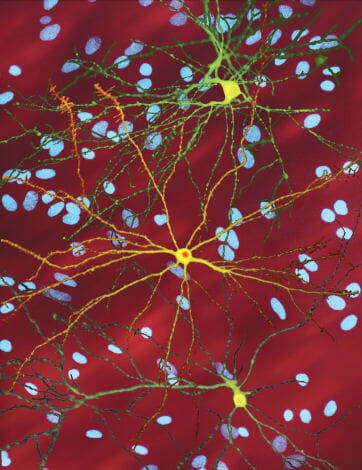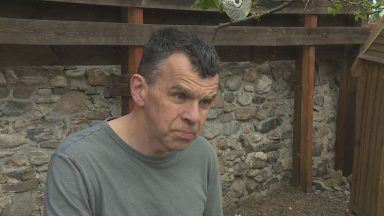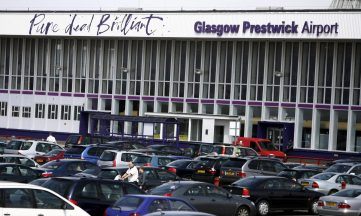Doctors say they have successfully treated Huntington’s disease for the first time.
The news, which was announced on Wednesday, will be particularly welcomed across the north of Scotland, which has one of the highest rates of the disease in the world.
Huntington’s runs through families, relentlessly killing brain cells and resembles a combination of dementia, Parkinson’s and motor neurone disease.
But researchers at University College London have found that a new gene therapy treatment slowed the progression of the disease by 75% in patients.
It is the first time a drug trial has reported continuing, statistically significant slowing of Huntington’s progression.
What is Huntington’s disease?
Huntington’s disease is a complex neurological condition with symptoms that typically begin to develop between the ages of 20 and 70.
It is hereditary, meaning that it impacts upon entire families over generations rather than on individuals alone, with each child of a person who has Huntington’s disease at 50% risk of inheriting the condition.
Symptoms generally progress slowly over a long period time. Those who have the disease may eventually lose the ability to walk, talk, eat, drink, make decisions or care for themselves.
It typically takes between ten and 25 years from a person developing symptoms until the end of life.
The gene that causes Huntington’s disease was discovered in 1993 but until now, there were no effective treatments to prevent or slow the progression of the disease.
The new gene therapy, AMT-130, is the first gene therapy to be tested in people with Huntington’s, and was developed by uniQure, a gene therapy company based in the Netherlands and the United States.
‘I am thrilled at this study’
Professor Sarah Tabrizi, lead scientific advisor on the trial, described the results as “spectaular”.
Ms Tabrizi, who studied medicine at the University of Edinburgh, said: “l am thrilled that this study of AMT-130 showed statistically significant effects on disease progression at 36 months.
“These groundbreaking data are the most convincing evidence in the field to date and underscore the disease-modifying effect in Huntington’s disease, where an urgent need persists.
“For patients, AMT-130 has the potential to preserve daily function, keep them in work longer, and meaningfully slow disease progression.”
Professor Ed Wild, principal investigator of the UCL Huntington’s Disease Centre trial site at UCL and UCLH, added: “This result changes everything. On the basis of these results it seems likely AMT-130 will be the first licensed treatment to slow Huntington’s disease, which is truly world-changing stuff.
“If that happens, we need to work hard to make it available to everyone who needs it, while working no less diligently to add more effective treatments to the list.
“Trial results come through in numbers and graphs, but behind each datapoint is an incredible patient who volunteered to undergo major neurosurgery to be treated with the first gene therapy we’ve ever tested in Huntington’s disease. That is an extraordinary act of bravery for the benefit of humanity.
“My patients in the trial are stable over time in a way I’m not used to seeing in Huntington’s disease – and one of them is my only medically-retired Huntington’s disease patient who has been able to go back to work.”
Northern Scotland has one of the highest rates in the world
A study earlier this year found that Northern Scotland has one of the highest rates of Huntington’s disease in the world.
The number of people living in the area who have the gene that causes the condition was accurately counted for the first time in 35 years in research by the University of Aberdeen.
Researchers used NHS family-based records to find there are more than 160 adults living in Grampian, Highland, Orkney, Shetland, and the Western Isles who have the gene but have not been tested, and scientists believe the figure will be even higher as not everyone with symptoms seeks diagnosis.
The study, published in Neuroepidemiology, confirmed northern Scotland has one of the highest rates of Huntington’s disease in the world at 14.5 per 100,000 people, more than five times the estimated worldwide rate of 2.71 per 100,000 people.
‘These are the best results to date from any clinical trial’
Alistair Haw, CEO of the Scottish Huntington’s Association, welcomed the results of the UCL study on Wednesday, but warned of the need to ensure that Scotland’s health and social care system is ready for the treatment.
“These are the best results to date from any clinical trial aiming to slow the progression of Huntington’s disease,” he said.
“After many years of hope and false dawns, this is a day for rejoicing for the global Huntington’s community. The first treatment for this horrendous condition appears to finally be appearing at the end of this long dark tunnel.”
“At present, people in a Huntington’s family who know they are at risk of inheriting the disease from a parent overwhelmingly choose not to be tested to find out if they have the faulty gene. With a treatment on the horizon, this will all change.
“More people will come forward requiring specialist help and support with this process. This will require more capacity in the system to cope with the demand, not less.
“Sadly, Glasgow City HSCP is planning to become the first area in history to defund our Huntington’s Disease Specialist Service. This was always an ill-advised false economy, but in light of today’s news this plan becomes an ill-advised false economy on steroids.
“After decades of progress Scotland is a world leader in providing specialist Huntington’s care and support thanks to services provided by Scottish Huntington’s Association backed by a Scottish Government supported National Care Framework.
“At this time of all times we need to grow these services, not reduce them. Unless health and social care providers grasp this reality, and now, Scotland risks snatching defeat from the jaws of victory on this otherwise unprecedented day of celebration for the Huntington’s community.
“And that would be unforgiveable. We call on the Scottish Government to unite with us to prevent this from happening.”
A spokeswoman for Glasgow’s Health and Social Care Partnership said: “IJBs across Scotland are faced with difficult financial challenges and Glasgow is no different.
“The Glasgow City IJB approved a savings plan in March this year which included the cessation of Huntington’s service with alternative plans being developed to provide support where necessary.”
A Scottish Government spokesman said: “We welcome this important step forward and the potential it brings for treating this life-changing condition.
“We’re supporting NHS Boards and community partners to ensure families receive the best possible care, information and support and are actively considering solutions to the funding challenges raised by the Scottish Huntington’s Association.”
Follow STV News on WhatsApp
Scan the QR code on your mobile device for all the latest news from around the country




























